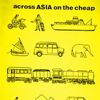 A woman examined bouquets and messages left by Google users on Wednesday outside the Internet search company's headquarters in Beijing. Jason Lee/Reuters
A woman examined bouquets and messages left by Google users on Wednesday outside the Internet search company's headquarters in Beijing. Jason Lee/Reuters
January 14, 2010
By KEITH BRADSHER and DAVID BARBOZA
HONG KONG — Google is far from alone among Western companies in its growing unhappiness with Chinese government policies, although it is highly unusual in threatening to pull out of the country entirely in protest.
Western companies contend that they face a lengthening list of obstacles to doing business in China, including “buy Chinese” government procurement policies, widespread counterfeiting and growing restrictions on foreign investments.
Some of these obstacles are a result of China’s desire to maintain control over internal dissent. Others stem from China’s efforts to become internationally competitive in as many industries as possible.
Google’s difficulties and its strong response are indicative of a broader shift in sentiment among multinational executives in China.
“I have never seen the foreign business sentiment as pessimistic as it is right now,” said James McGregor, a consultant in Beijing. “There’s a sense China is saying, ‘We have your technology and your capital — and now we have control of the market.’ ”
Google complained on Tuesday about attacks on its computers that it said originated in China and said it was no longer willing to censor its Chinese site’s search results. It is not the first company to run afoul of the Chinese Communist Party’s fears of social instability and strong desire to keep tabs on dissidents and limit freedom of expression.
China has long restricted the sale of foreign movies, books, music and other media and continues to do so while appealing a World Trade Organization ruling in August that these policies violate China’s legally binding commitments to the international free trade system. More recently, China has sought to strengthen its domestic encryption industry — for which the government has easy access to all the decryption codes — while withholding the government certification that foreign-owned encryption companies in China need to sell their products to many users.
Jörg Wuttke, the president of the European Union Chamber of Commerce in China, said that no European Union companies had pulled out of China yet. But he said the encryption dispute would be the most likely cause if any European company withdrew in the near future.
Duncan Clark, the chairman of BDA, a consulting firm in Beijing that advises major telecom and technology companies, said that Google’s difficulties were indicative of broader troubles for foreign companies in China.
“There has been a raft of decisions and unpredictability, a kind of unpleasantness about what’s happening here,” Mr. Clark said. “There has been this received wisdom that no one can afford not to be in China, but that is being questioned now — there’s kind of an arrogance that’s characterizing government policy toward multinationals.”
To be sure, doing business in China has never been easy. Foreign companies have long complained of being cheated by joint venture partners who set up parallel businesses on the side or abscond with assets. Many other countries also have policies that favor homegrown companies, although the opportunity for industrialized countries to do so is limited because they operate under tighter World Trade Organization rules than China.
Chinese officials and academics dispute whether government policies are discriminatory toward foreign companies. Hu Yong, an associate professor of journalism and communication at Peking University, said that the government was leery of the rapid expansion of the Internet and mistrustful of private Chinese companies as well as foreign businesses.
“I think in the information technology sector, not only foreign companies are under very heavy pressure, but also private domestic companies,” he said. “The general trend is that the government wants state-owned companies to occupy major positions in this field.”
Other strains between China and the West over business matters have grown out of government policies that shield Chinese companies from international competition. These policies allow companies to grow in a large home market and prepare to export to less-protected markets abroad.
The newest frictions, particularly in the last year, have been over government procurement policy. When China joined the W.T.O. in November 2001, it promised to negotiate as quickly as possible to join the organization’s side agreement requiring free trade in government buying. But it has never actually done so, leaving the Chinese government free to use its enormous buying power to steer contracts to Chinese-owned companies.
The National Development and Reform Commission, China’s top economic planning agency, ordered national, provincial and local government agencies on June 4 to buy only Chinese-made products as part of the country’s nearly $600 billion economic stimulus program; imports were allowed only when no suitable Chinese products were available.
China has also restricted exports of a long list of minerals for which it mines much of the world’s supply, like zinc for making galvanized steel and so-called rare earth elements for manufacturing hybrid gasoline-electric cars.
Those restrictions, ranging from steep export tariffs to tonnage quotas and even export bans, have made it cheaper for many manufacturers to locate their factories in China to make sure that they have a plentiful supply of raw materials free from export taxes. In June, the United States and the European Union filed a W.T.O. case challenging China’s restrictions on zinc and bauxite exports. The Chinese government has denied wrongdoing.
China’s weak protections for patents and trademarks — and widespread counterfeiting as a result — have produced large industries that make goods in direct competition with Western competitors, but without comparable spending on research or marketing. Many Western companies have tried to respond by limiting the intellectual property that they transfer to China.
Oded Shenkar, a professor of business management at Ohio State University and author of “The Chinese Century,” said very few companies would be willing to leave a market as big as China’s, and that it might make sense only for a company like Google whose primacy rested almost entirely on intellectual property.
“The U.S. is the world’s greatest innovator and China is the world’s greatest imitator,” Mr. Shenkar said. “Google? What do they have other than intellectual property? If by being in China you’re at risk of losing it, maybe you don’t want to be there.”
But the Chinese market is so large and competitive that many multinationals choose to offer their latest technology for fear of losing market share if they don’t.
Volkswagen used dated technology in the cars that it sold here in the 1980s and 1990s, so the Chinese government asked multinational automakers in the mid-1990s which of them would offer the most advanced technology in exchange for the right to enter the market and build a factory in Shanghai. General Motors won the contest and brought its latest robots and automotive designs to China in a joint venture with Shanghai Automotive.
China has become the world’s largest auto market, yet it still limits foreign automakers to 50 percent stakes in auto assembly plants in China and assesses steep tariffs on imported cars. Chinese automakers that formed joint ventures with multinationals, like First Auto Works and Shanghai Automotive, have grown into giants that are now beginning to produce their own models, designed and built almost entirely in China.
The Chinese government has been introducing similar policies to force international companies to transfer their best technology in a long list of industries, like railroad locomotive manufacturing and aircraft assembly. It has also tried to give market preferences to domestic companies that invest in developing their own technology, even if the home-grown technology is initially inferior to foreign technology.
In November, the Chinese government notified domestic and foreign companies alike that the government would give preference in its purchases to products that used technology developed in China and had trademarks that were registered first in China. That led to a strong letter of protest by 34 industry associations to China’s Ministry of Commerce.
Mr. McGregor suggested that Google’s decision might prove to be a turning point.
“This may be seen as a real watershed,” he said. “There is a lot of feeling that the U.S. is on a downward spiral and China is on the rise.”
Keith Bradsher reported from Hong Kong and David Barboza from Shanghai. Michael Wines contributed reporting from Beijing.









